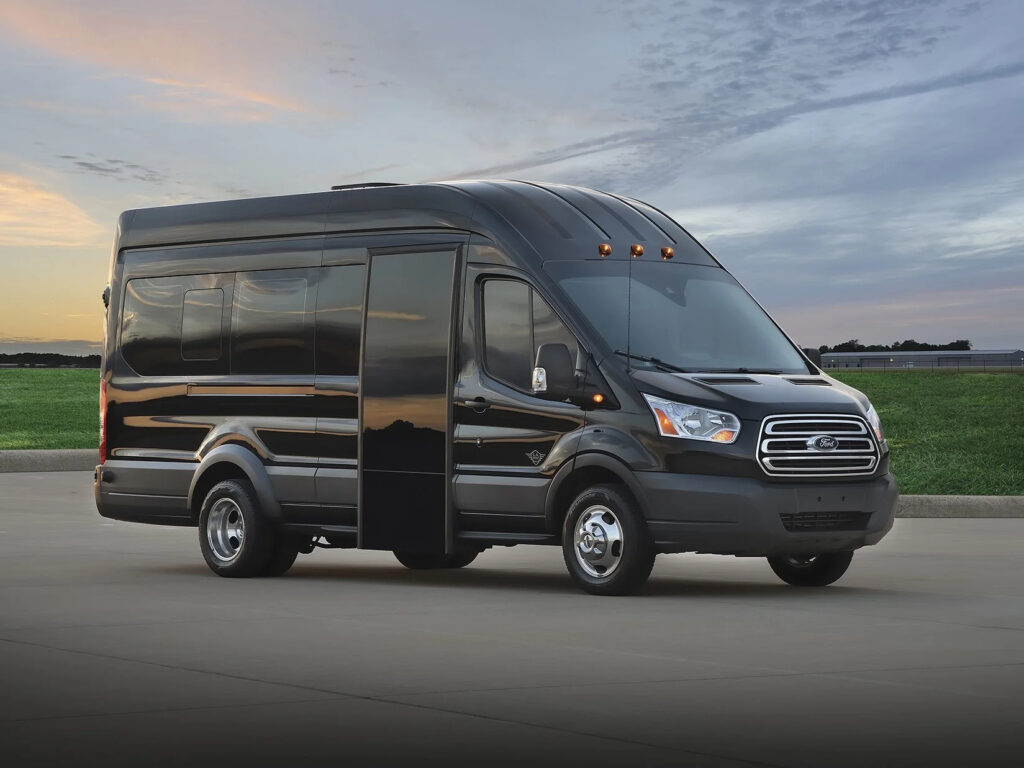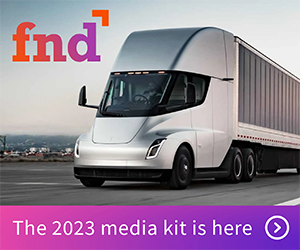New Generation 4 Lightning Electric Transit Class 3 Van Introduced by Lightning eMotors
2021 model offers both battery-electric and fuel cell electric variants with up to 250 miles range and up to 105 kWh of battery capacity
Lightning eMotors leading provider of commercial electric vehicles for fleets, today announced the debut of a new model of its popular Class 3 Lightning Electric Transit Van.
The new, longer-range Lightning Electric Transit Van is the fourth generation of its battery-electric and fuel cell electric platform, based on the Ford Transit 350HD chassis. The Gen 4 powertrain, with new battery technology and up to 105 kWh of battery capacity, has up to 40 percent more range than the Gen 3’s 120-mile range as a battery-only vehicle, with fuel cell configurations extending the range to 250 miles (based on EPA-certified dynamometer testing) and new pricing that provides a compelling total cost of ownership versus a gasoline van.
“Used extensively by commercial and government fleets, Class 3 vehicles, such as passenger vans, cargo vans and ambulances, are ripe for electrification,” said Tim Reeser, CEO of Lightning eMotors. “Class 3 vehicles have an extended wheelbase and expanded cargo and payload capacity and are commonly used by mid-to-large-sized fleets.”
New for 2021, Lightning eMotors will offer a new digital dashboard that highlights range, efficiency and state of charge, a new phone application interface, and support for new Ford safety features. In addition, Lightning eMotors is the only electric van manufacturer that supports wheelchair lifts, custom floor rails, and custom bus doors. Lightning eMotors offers high-voltage integration to support battery operation of refrigeration systems, food truck equipment, medical equipment, RV gear, and other upfitter add-ons. Many of these new features will be offered in Lightning eMotors’ Class 4, 5, 6 and 7 vehicles in 2021.
Lightning eMotors’ products are complementary to Ford’s announced 2022 E-Transit, which will be a battery-electric Class 2 cargo/cab/chassis van with an estimated 126 miles of range. The Lightning Electric Transit Van is available for order now, with deliveries starting in the second quarter of 2021.
“We are the only manufacturer to offer a CARB-certified electric van in the Class 3 segment,” Reeser said. “As a result, we’ve sold more all-electric commercial EVs than any other vehicle manufacturer in North America to date. The feedback from our customers over the last three years has been that they love the platform and its powerful, smooth and quiet ride, as well as the intuitive driving experience and readily available service and spare parts. This new battery technology and other upgrades give them the range, power and features at the price they need to scale up their electric fleets.”
Introduced in 2018, the Lightning Electric Transit Van, along with Lightning eMotors’ Class 4 and 5 Ford-chassis-based electric vehicles are certified under Ford’s eQVM (Advanced Fuel Qualified Vehicle Modifiers) program, which ensures that Ford’s warranty on the vehicle remains in effect, complementing Lightning eMotors’ five-year, 60,000-mile warranty on the electric powertrain. Service is performed by Lightning eMotors’ network of Ford QVM-certified service centers, upfitters, and dealers, and spare parts are readily available worldwide.
Assembly is performed at Lightning eMotors’ Loveland, Colorado facility, which is currently ramping up to reach a production capacity of 1,000 electric commercial EVs per year in 2021 and with a goal of 20,000 vehicles per year by 2025.
The latest Lightning Electric Transit powertrain offers peak power of 160 kW (equivalent 215 horsepower), and a torque rating of 994 Nm (733 lb-ft). The fully electric system is available for Ford Transit passenger vans, cargo vans, cutaway and chassis-cab models and also is available in configurations to support ambulances, school buses and RVs. The Gen 4 model achieves 61 MPGe on certified dyno testing, compared to 13 MPG for the gasoline version. This is the highest CARB dynamometer-certified efficiency rating for any Class 3 vehicle currently in the market.
Featuring a new, state-of-the-art, modular liquid-cooled lithium-ion battery system, the Lightning Electric Transit Van 350HD can add 60 miles of range in 30 minutes of charge time when using DC fast charging with a standard SAE J1172 CCS-1 Combo charging port. Lightning eMotors offers a complete range of fleet-focused chargers and charging-as-a-service solutions, with full installation, utility integration, software control, and Low Carbon Fuel Standard and renewable energy credit support.
With an 11,000-pound gross vehicle weight rating (GVWR), the vehicle has a payload capacity of up to 4,840 pounds, depending on the selected battery configuration option and other equipment.
“Fleets love the Class 3 Ford Transit, because it can haul more payload and carry more passengers,” Reeser said. “We work with many Ford upfit, accessory and service partners, so customers can easily obtain the accessories and service they need for their fleet. This is an elegantly engineered zero-emission solution on a proven platform for fleets.”
Lightning eMotors Credit and Ford Motor Credit financing is available along with electric vehicle vouchers and incentives, which are accessible in many states. Lightning eMotors offers comprehensive leasing plans, which allow fleets to see total-cost-of-ownership savings from lower energy and maintenance costs, starting on day one of the lease.
Vehicles purchased by fleets in California are eligible for special funding via the California Air Resources Board (CARB) Hybrid and Zero Emission Truck and Bus Voucher Incentive Project (HVIP). The voucher program can reduce the upfront cost of advanced zero-emission fleet vehicles by 30 to 70 percent. Over the past 10 years, HVIP has committed to supporting the purchase of more than 4,000 zero-emission trucks and buses with vouchers requested by California fleets.
Category: Electric Vehicles, Featured, Fuel & Oil, General Update, Green, News, Vehicles










